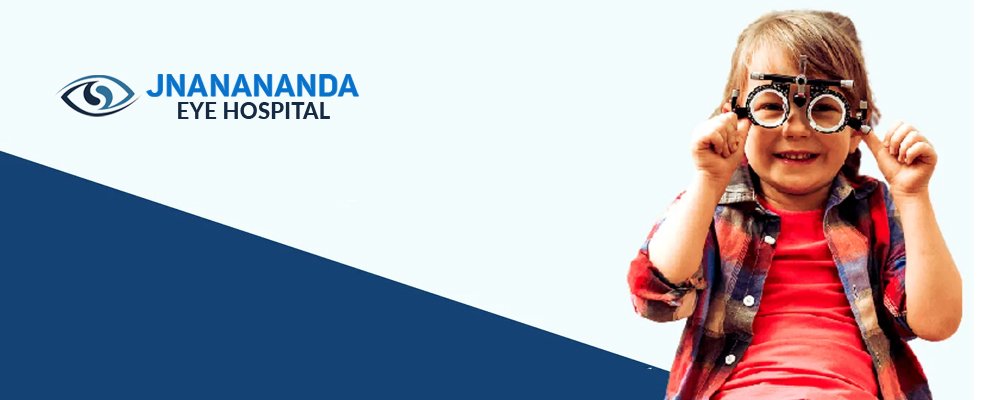WHAT SHOULD YOU LOOK FOR IN YOUR CHILD?
Take a good look at your child while he/she is playing or watching a book/Tv and note if any of the follwing are present.
- Squeezing his/her eyes while looking at book/Tv/Toys.
- Tilting the head while talking, walking/ playing.
- Going too close to the book or tv.
- Recurrent eye pains, headaches.
- Avoids reading, colouring most of the time.
- Has bad handwriting at school.
- Eyes turning inwards/outwards.
- Difficulty in seeing in sunlight, bright light in the evening.
- Itching, watering.
If any of the above are present then you should suspect the chld to have a possibility of eye problem. The problem could be either refractive errors or squinting of the eyes. These are easily treated and a proper screening of the child having any of the above complaints is needed to rule out any other causes as well.
SHOULD ALL CHILDREN BE SCREENED PREFERABLY BUT THE FOLLOWING SHOULD BE DEFINITELY SCREENED?
- One on both parents wearing glasses
- History of consanguinity(marraige among cousins) in family
- Premature delivery
- Birth weight less than 1.5 Kgs.
- History of any congenital defects like heart, kidney etc.
- History of febrile fits or any convulsion.
- History of admission in the ICU- incubation/ ventilation given to child.
- Behavioural disorders or any developmental delay in the child.
- History of colour blindness and retinal disease in the family.
WHY SHOULD AN EYE DOCTOR SEE A CHILD?
- Early detection of eye sight problem gives rise to better vision development.
- Good vision correction causes good performance at school and home.
- Squinting of eye if diagnosed early can be treated with exercises and glasses in some cases.
- It is possible to give the child good binocular(coordinated) development of eyes.
- Other behaviouaral, social problems if present in the child will also benefit in their treatment.
WHEN SHOULD CHILDREN BE SCREENED?
If the child has a problem then anytime is a good time to visit the eye doctor however specific visits can be planned as follows
- A preterm infants/low birth at infant at 4 weeks after birth.
- A normal baby at 3 to 3½ years of age for a preschool eye check.
SERVICES OFFERED
- Comprehensive preschool check up
- Watery eye evaluation
- ROP screening
- Squint clinic
- Glasses prescription
- Lazy eye Screening
- Visual disorders management
- Screening for special children
Comprehensive preschool eye check
This involves a complete screening of a child for vision, squint, retina and optic nerve diorders. For preschool eye check following examinations are carried out
- Examination of anterior part of the eye :screening for congenital corneal disease, anterior chamber,lens diseases.
- Vision testing : ability of the child to see, that is measured by specialized preschool picture charts of international standards and is age matched.
- Examination of presence of any deviation or squinting of the eyes: this is carried out by speacial measuring instrumrents that are child friendly and not intimidating to the child in any way.
- Binocular vision function of eyes testing: here the tests performed ascertain whether there is coordinated use of both the eyes. Color vision, pupil and contract senstivity testing.
- Examination of the intraocular pressure:this is done in children specially with a positive family history or examination findings suggestive of an increase.
- Check for confirmation of eye glasse power: by special eye drops after relaxing the eye muscles so that any glass power that is hidden and not apparent can also be screened.
- Examination of retina and optic nerve.
Treatment Medical
- Lazy eye management.
- Glass prescription.
- Eye excercises.
- Low vision aids.
- Allergic eye conditions.
- Eye infections.
- Glaucoma management.
- Retinal lasers.
Surgical
- Congenital cataract management.
- Glaucoma surgeries.
- Corneal transplant.
- Squint correction.
- Retinal surgeries in children.


